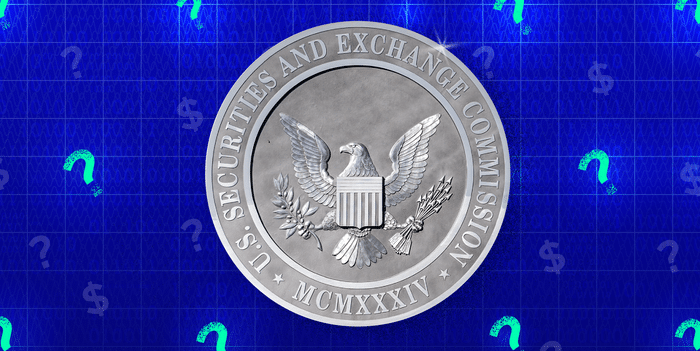Elon Musk, the CEO of Tesla, and Mark Cuban, the owner of the Dallas Mavericks, have collaboratively submitted an amicus brief in support of the defendants in an ongoing Supreme Court case challenging the U.S. Securities and Exchange Commission (SEC). The brief where Elon Musk and Mark Cuban back the lawsuit against the SEC underscores the importance of ensuring that the SEC is not given the discretion to selectively determine whether parties are entitled to exercise their constitutional right to a jury trial or compelled to navigate enforcement proceedings overseen by administrative law judges with limited external scrutiny.
Elon Musk and Mark Cuban Support Legal Challenge Against the SEC
Elon Musk, the CEO of Tesla, Mark Cuban, owner of the Dallas Mavericks, and a group of other individuals have collectively submitted an amicus brief to the Supreme Court, expressing their support for a case that questions the legitimacy of the U.S. Securities and Exchange Commission’s (SEC) administrative procedures. This amicus brief, which represents the views of these prominent figures, is in conjunction with Phillip Goldstein, Nelson Obus, Manouch Moshayedi, and the Investor Choice Advocates Network (ICAN).
The Supreme Court is slated to consider the SEC v. Jarkesy case on November 29. This legal challenge questions the constitutionality of the SEC’s utilization of internal judges. The plaintiff, George Jarkesy, contends that the SEC’s internal adjudication process, which lacks a jury and involves an administrative law judge appointed by the commission, infringes upon his Seventh Amendment right to a trial by jury.
The SEC’s Shift to Internal Proceedings
The amicus brief highlights that the SEC commenced handling a higher number of cases internally during the period spanning from 2013 to 2014. This shift came about in response to “a series of jury trial losses in insider trading cases” experienced by the SEC. The submission asserts that those who have joined in submitting the amicus brief are invested in the outcome of this case because they hold the belief that:
It is important that the SEC not be permitted to pick and choose whether parties are granted their constitutional right to jury trials or are forced to proceed in enforcement proceedings with administrative law judges (ALJs) immune from proper and meaningful oversight.
Inequities in SEC Administrative Proceedings: A Denied Right to Jury Trial and Legal Protections
The document clarifies that “unlike defendants in federal court proceedings, respondents in SEC administrative proceedings are not granted the entitlement to a jury trial or the advantages and safeguards provided by federal rules of evidence and procedure.”In May 2022, the Fifth Circuit Court of Appeals concluded that Jarkesy’s Seventh Amendment right to a jury trial had been violated, a judgment that promptly followed the SEC’s admission in April 2022 that its staff had inappropriately accessed documents in numerous cases, including Jarkesy’s case.
Justice Department Solicitor General Elizabeth Prelogar argues that the appeals court “misjudged by asserting that Congress breached the Seventh Amendment by permitting the SEC to initiate administrative proceedings seeking civil penalties” and calls upon the Supreme Court to reverse this decision. The Biden administration is urging the Supreme Court to overturn the ruling, stating that it could yield “significant practical implications” throughout the federal government if it remains unchanged.
The legal representatives for Musk and Cuban contend that the “current structure of SEC administrative proceedings leads to unequal outcomes for SEC defendants.” They go on to state: The SEC’s insistence on administrative proceedings when federal court juries are readily available runs contrary to the SEC’s mission and harms the very investors and markets the SEC is charged with protecting.
The SEC’s Hypocrisy: Demanding Transparency but Utilizing Non-Jury Administrative Proceedings
In the laws and regulations that fall within the SEC’s purview, as well as through its own actions, public statements, and admissions, the SEC emphasizes the paramount importance of complete transparency and disclosure to safeguard the interests of participants in the securities markets. Nevertheless, the regulatory body resorts to administrative proceedings, which lack the thoroughness and deliberation inherent in a jury trial, when litigating against defendants. This is despite the fact that the SEC could engage in more efficient and transparent litigation in federal court.
Furthermore, it is asserted that when the SEC opts for an administrative proceeding, whether before an Administrative Law Judge (ALJ) or the commissioners of the SEC, it assumes the exclusive role of fact-finder, unilaterally determining a respondent’s liability and the corresponding penalties, all without the participation of a jury.
Consequently, Musk, Cuban, and other amici strongly implore the court to uphold the Fifth Circuit’s decision while reversing its directive to remand the case to the Commission. Their legal representatives articulated: Accordingly, amici … urge this court to endorse the Fifth Circuit’s reasoning to ensure that the SEC is required to appropriately litigate in all circuits, not just the Fifth Circuit.
The amicus brief filed by prominent figures, including Elon Musk and Mark Cuban back lawsuit against the SEC underscores the critical need for transparency and fairness in SEC proceedings. It highlights the contradiction in the SEC’s commitment to transparency while relying on non-jury administrative proceedings. Their appeal to the court seeks to ensure a more equitable and open legal process for defendants and is positioned to shape the future of the SEC’s regulatory practices.
Also Read: Russian govt wants to use CBDC to collect tax and for Welfare Distribution.












